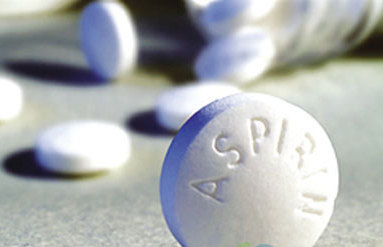导读:香港大学3月5日公布的一项研究结果发现,颅内出血的康复者如其后因心血管问题而使用阿司匹林,并不会增加其颅内出血的复发风险。

据介绍,阿司匹林是一种非常普遍而重要的心血管病药物,可用作治疗冠心病、缺血性中风、周围血管疾病等。但由于阿司匹林会增加病人出血的风险,如颅内出血,因此通常被医生认为是“不安全”的药物而放弃使用。
为进一步了解阿司匹林对颅内出血康复者的利弊,港大李嘉诚医学院分析了440位于1996年5月至2010年2月期间入住玛丽医院脑外科病房的颅内出血患者的情况。这些病人其后都获医院门诊部跟进,每名病人的平均跟进期为5年。其中127名病人在跟进的期间出现心房颤动、冠心病、缺血性中风或短暂性脑缺血发作心血管毛病而需服用阿司匹林,最后当中有56人获处方阿司匹林。
研究发现,获处方阿司匹林的病人,其颅内出血的每年复发率,与未有服用阿司匹林的病人相当。另外,获处方阿司匹林的病人中,其急性心脏病和缺血性中风5年病发率,较未有服用者低50%。
根据以上的研究,港大内科学系临床副教授萧颂华医生指,研究证实阿司匹林并非导致颅内出血的风险因素。阿司匹林能避免患有心血管疾病的病人出现缺血,因此即使病人曾患有颅内出血,医生也应按病人的需要而处方有关药物。
这次研究结果已经刋登于国际医学期刋《血栓形成与止血》上。

Use of aspirin in Chinese after recovery from primary intracranial haemorrhage
B.-H. Chong (1), K.-H. Chan (2), V. Pong (1), K.-K. Lau (2), Y.-H. Chan (3), M.-L. Zuo (1), W-M. Lui (4), G. K.-K. Leung (4), C.-P. Lau (1), H.-F. Tse (1), J. K.-S. Pu (4), C.-W. Siu (1)
Intracranial haemorrhage (ICH) accounts for ~35% of all strokes in Chinese. Anti-platelet agent is often avoided after an index event due to the possibility of recurrent ICH. This single-centered observational study included 440 consecutive Chinese patients with a first spontaneous ICH surviving the first month performed during 1996–2010. The subjects were identified, and their clinical characteristics, anti-platelet therapy after ICH, and outcomes including recurrent ICH, ischaemic stroke, and acute coronary syndrome were checked from hospital records. Of these 440 patients, 56 patients (12.7%) were prescribed aspirin (312 patient-aspirin years). After a follow-up of 62.2 ± 1.8 months, 47 patients had recurrent ICH (10.7%, 20.6 per 1,000 patient years). Patients prescribed aspirin did not have a higher risk of recurrent ICH compared with those not prescribed aspirin (22.7 per 1,000 patient-aspirin years vs. 22.4 per 1,000 patient years, p=0.70). Multivariate analysis identified age > 60 years (hazard ratio [HR]: 2.0, 95% confidence interval [CI]: 1.07–3.85, p=0.03) and hypertension (HR: 2.0, 95% CI: 1.06–3.75, p=0.03) as independent predictors for recurrent ICH. In a subgroup analysis including 127 patients with standard indications for aspirin of whom 56 were prescribed aspirin, the incidence of combined vascular events including recurrent ICH, ischaemic stroke, and acute coronary syndrome was statistically lower in patients prescribed aspirin than those not prescribed aspirin (52.4 per 1,000 patient-aspirin years, vs. 112.8 per 1,000 patient-years, p=0.04). In conclusion, we observed in a cohort of Chinese post-ICH patients that aspirin use was not associated with an increased risk for a recurrent ICH.








